Teach Your Baby to Play Independently
Get the free childhood design guide
 Babies and children are designed and wired for play and exploration. It will happen naturally if we give them the time and space.via @ParentingJunkieTweet This
Babies and children are designed and wired for play and exploration. It will happen naturally if we give them the time and space.via @ParentingJunkieTweet ThisCan babies play independently? Is that even possible? Or is it something that only develops later (if at all)? The answer is…they can! And in this video, I’m going to talk about 10 ways to encourage babies to play independently.
One of the most profound ways to enjoy parenting is to reclaim what I call the pillar of childhood, which is independent, immersive, imaginary play. And the best part is: you don’t have to wait for your child to be a toddler or a preschooler for them to learn how to play independently. In fact, independent play can start from the earliest of days with a newborn. Here are 10 ways to help your babies learn this priceless skill:
- Don’t entertain (00:57)
Of course, you’re going to be drawn to smiling at your baby, cooing, singing and playing with them from time to time throughout the day. Other times, you’re going to be caring for them, nursing them, feeding them, changing their diapers and putting them to sleep. But in those short windows of time that baby is alert, clean, not hungry and not tired is a great time to start developing the independent play muscle. Babies and children are designed and wired for play and exploration. It will happen naturally if we give them the time and space. However, we are told by so many people that we need to entertain them, shake a rattle in their face, sing songs to them, put them in front of something that flashes and dances and generally keep them busy. In fact, this actually undermines their ability to entertain themselves and to explore at their own pace. It can sometimes overwhelm them and overtake their innate curiosity. So the first step is to stop getting them hooked on always being entertained and instead give them the time to entertain themselves. - Le Pause (02:31)
The next tip is to pause. The phrase, ‘Le Pause,’ came from the French parenting book, “Bringing Up Bébé” by Pamela Druckerman, which talks about pausing before picking up babies when they wake because they may fall back asleep. This concept is also important when babies are playing. When we put a newborn or a young baby on the floor to play, they may whine or complain a bit. And often our instinct is to come rescue them. But it’s really important not to rush in to save a baby from a little bit of boredom. That boredom is actually the gateway into that independent world and their imagination. So if baby is laying there grunting, give it a little pause and just observe. Sometimes they’ll settle right back into play. - Don’t Overstimulate (04:05)
The next one is to keep it super simple. Babies are new to the world. Everything is fresh and exciting. Often, we are conditioned by a consumerist culture to believe we need to buy all these toys for babies: colorful things, high-contrast things, noise makers, etc. But the truth is that for a baby, even looking at a shadow on the wall or the way the light is dancing on the ceiling, or maneuvering their body into rolling over, sitting or crawling — all of that constitutes play. Sometimes people will put a baby down in a space full of toys and they think when the baby starts crying, that baby is bored. But often the opposite is true. The baby might be overstimulated and needs to turn their head away or shut their eyes because it’s too much. So instead of overwhelming your baby, you want to keep it really, really simple with only 1 or 2 bright items for them to look at, and only 1 or 2 things that are within reach so they can take in what’s going on around them at their pace. - Don’t Interfere (06:14)
There’s a great quote that says that children like to be in the center of attention, but not at the center of attention. This is a great frame for how to relate to babies’ play. They want to be in the hub, right? They want to feel the action like you’re around, you’re cooking, you’re cleaning, you’re reading your book. You’re nearby. They’re not alone or isolated. However, they don’t actually need your eyes on them. They don’t need your attention. They don’t need you to constantly entertain them. And that’s a great flowy state for a baby to be in and start to learn about the world around them. So when they’re playing on the floor independently, you can sometimes leave for a few minutes to do something else and come back and check on them, as long as they’re in a safe yes space. The idea is that they should feel that closeness so that they don’t actually feel abandoned or neglected. They hear the noises that let them know you’re around. Maybe they can even see you. But you are not entertaining them or getting involved or over-directing their play. - Keep Things Low (07:43)
Think about things from a baby’s point of view and keep things down low. You might have all sorts of pretty decorations, like a mobile, pictures on the wall, all sorts of toys. It can be really beneficial to get down on the floor and see things from their level. What can they see? What can they reach? Think of some interesting ways to keep things comfortable and interesting for the baby. For example, perhaps think about the mat that they’re lying on. That’s what they’re going to be seeing if they’re on their tummy. Maybe that’s where you place a simple ball or one wooden object or something like that. You might even want to take it further into something like a floor mirror. (Make sure to get the plastic or Pyrex ones.) - Don’t Give Up — Keep Trying (09:11)
So many parents come to me and say, “My baby just won’t play!” And that turns into, “My toddler just won’t play!” and “My child just won’t play!” But biologically and evolutionarily, that doesn’t make any sense because kids are designed to play. That is how they learn about the world. That is how they develop and adjust. So if the baby isn’t playing, it might be because we’re not giving them enough opportunities to do so. Often, the culprit is babies are too strapped down — into car seats, highchairs, swings, and bouncers. When babies are restricted in their movement, they can’t develop any independence. We all have to use the stroller or carrier or car seat from time to time, but we need to make sure there are long stretches every single day when babies are unrestricted and given the freedom to explore. Now, a yes space is going to be a crucial element to this. Another crucial part is to keep trying. Just because you put your baby down once and they happen to be crying, maybe they were gassy or tired. Don’t give up. Simply readjust your mindset and try again. Don’t label your baby as high needs, et cetera, but rather, expect them to be able to play. It will be so beneficial for their development and make parenting so much easier for you. - Try Different Times (10:51)
The next one is to keep trying different timing. If your baby seems to not be interested in play or not be able to be alone for any length of time, then you might need to look at your routine and schedule. When they have slept and eaten, been burped, have a clean diaper and they’re comfortable, that would be a great time to try putting them on the floor for a little bit of independent playtime. It could be anywhere from 1 to 10 minutes and as they grow older, you can expect that time to get longer. Eventually, you’ll have kids who can hopefully play for hours on end as I do. It’s a great pleasure as a parent and makes things so much easier. And it’s the healthiest thing for our children as well. So if you’re finding that your baby is just not happy to play, maybe that’s a time when they need a nap or they need to be fed. What you really want to do is make sure they’re satiated and well rested. That will be the optimum time for them to play. - Try Different Positions (12:35)
In the newborn stage, baby will really only be playing on their back and perhaps on their tummy. As they start to move, you want to start seeing how they are comfortable and how they’re interested in playing. You can put them down in the position that they can get into themselves. For example, you wouldn’t put a newborn down in a sitting position. But as they are able to sit, as they’re able to crawl, start experimenting with the location and with the position that you’re putting them in. Are they happy playing in a playpen? Some babies feel really safe in something like a playpen, while others feel great on a mat or on the rug. - Keep Them Comfortable (13:30)
The next tip is to make sure that your baby is physically comfortable. Maybe your baby’s not playing because it’s too cold down there on the floor or too hot or scratchy, or they aren’t comfortable with that diaper. And sometimes they’ll be complaining and you’ll think it’s because they can’t play, but it’s really because they’re not physically comfortable. So this goes back to the timing and just making sure they’re satiated and well slept, they’re physically comfortable, nothing’s itching them, there’s no sun in their eyes, etc. I put my baby down to play recently and the sun was directly in his eyes. Just shifting around his mat to the other direction made a world of difference and then he was happy to be there for several minutes. - Experiment with Music (14:13)
Sound is another form of exploration for babies to play and explore with. You don’t need to go overboard with squeaky, crazy flashy sounds in their face, but adding perhaps some gentle classical music or some lullabies or some baby music to the space might help keep your baby entertained and fascinated in and of themselves. That can make a huge difference in encouraging babies to play independently.
So I’ll just finish off by saying: keep at it! Most children are really wonderful, amazing, intense, imaginative players if they are properly encouraged by their environment and by their caregivers.
Do you believe your baby can do it? Do you believe that it’s good for them? Are you going to feel guilty leaving them for a few minutes? If you keep feeling guilty or thinking that they can’t do it then that will likely become a self-fulfilling prophecy. So you must believe in your baby, believe in yourself and know that this is so healthy for babies.
Babies can play. And the primary reason they don’t is because we interfere and get in the way and overpower them with our entertainment, toys and loud noises. And we just need to give them a little bit of time, a little bit of space and a lot of trust, and they can do this.
Does your baby already play, or are you going to try some of these tips? If you enjoyed this video and it inspired you in some way, I’d love to hear about your biggest takeaway in the comments below! Or share with me on Instagram stories by tagging @parentingjunkie.

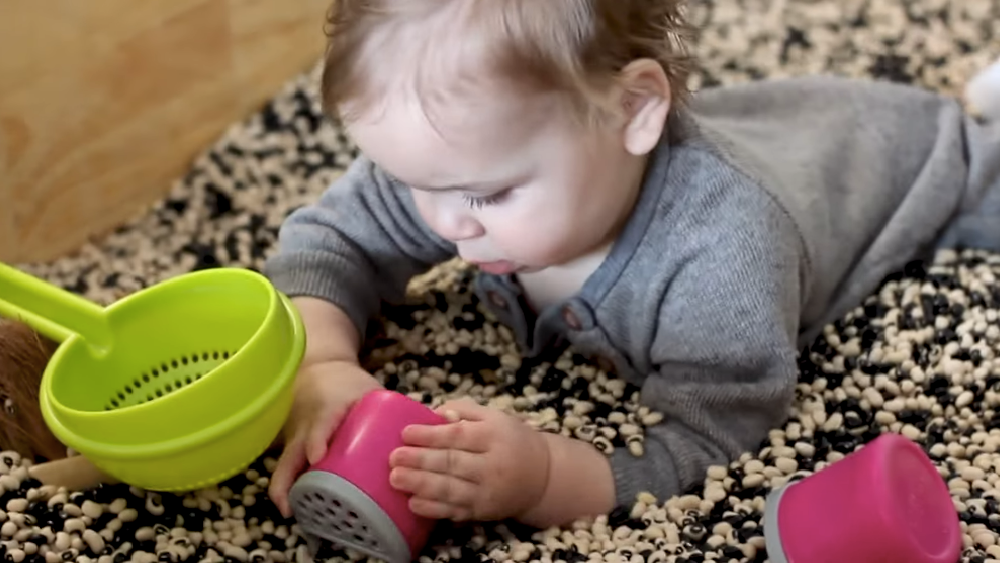


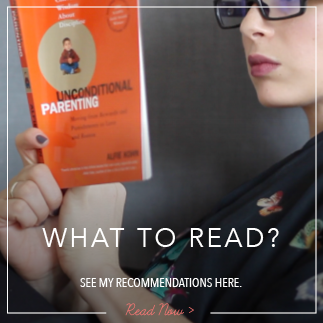
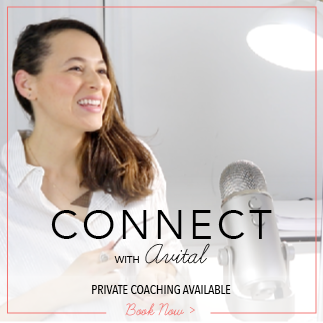


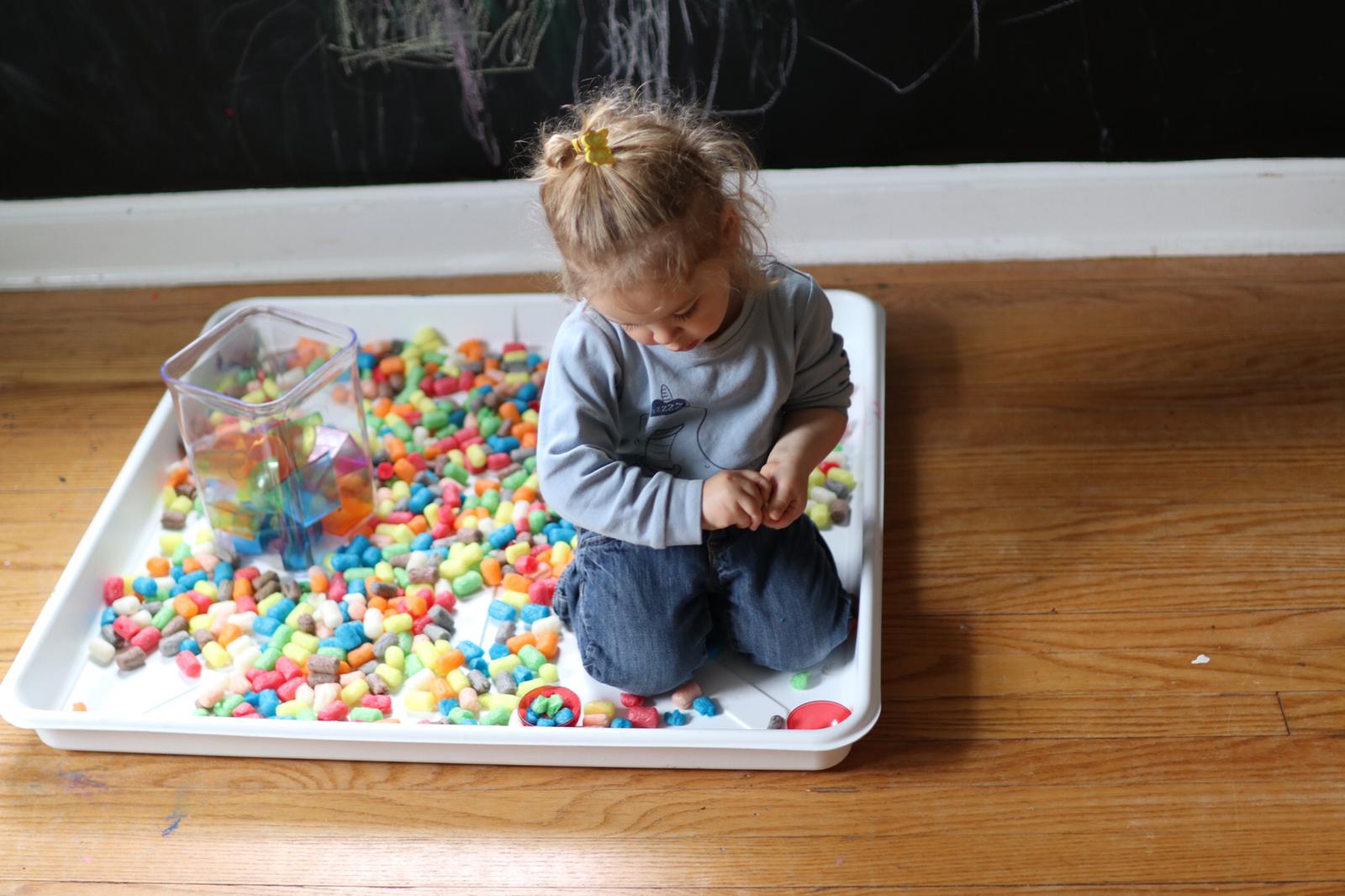
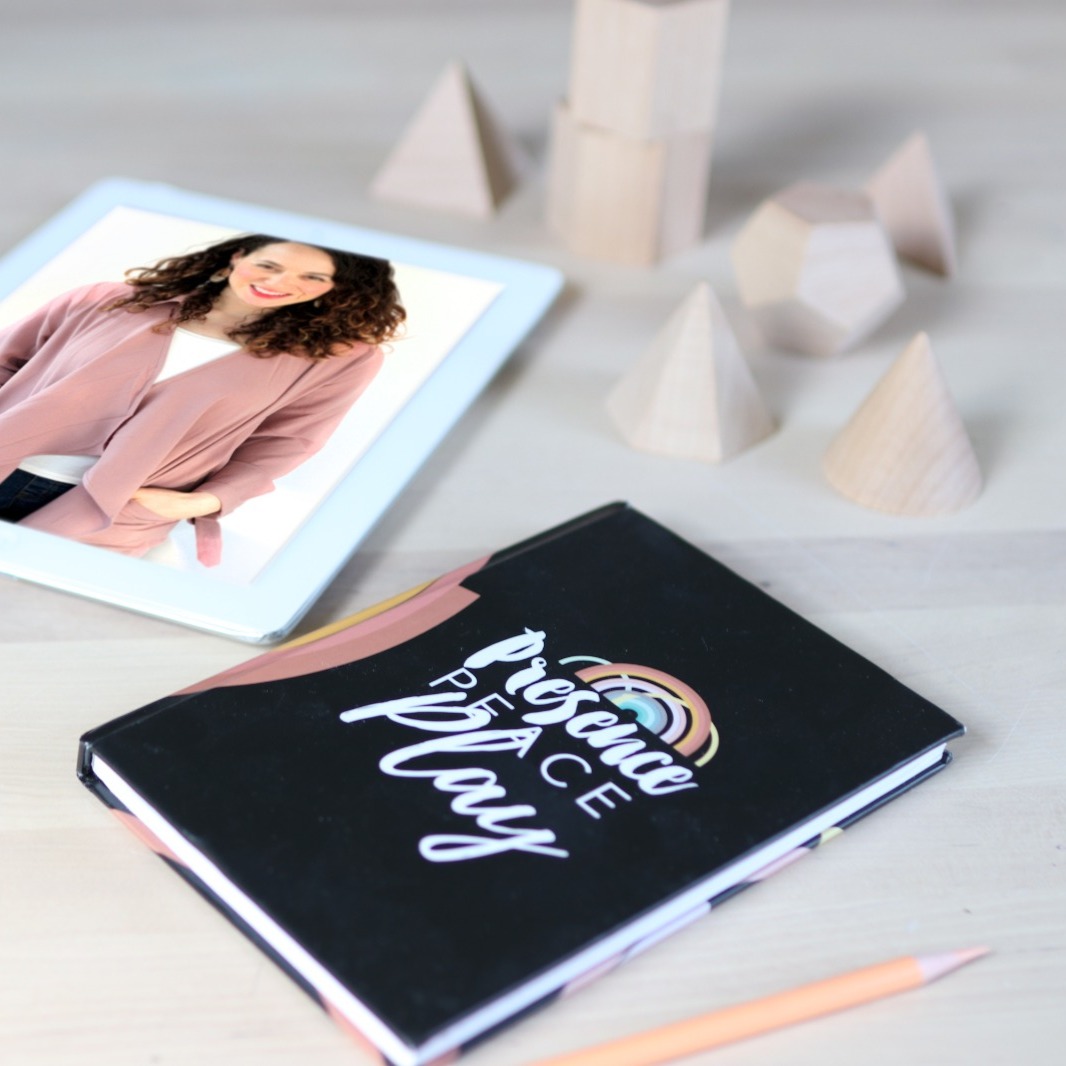
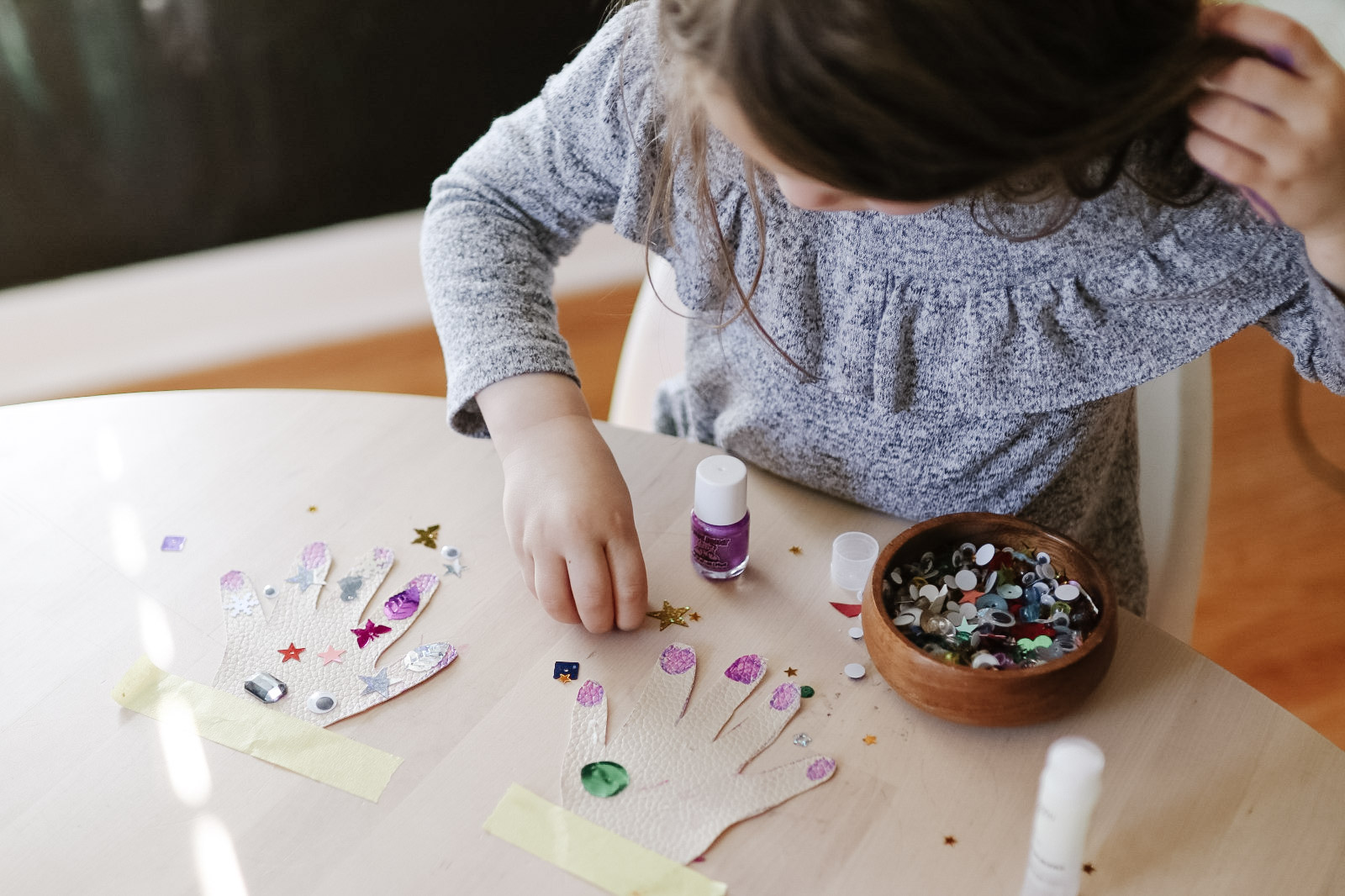
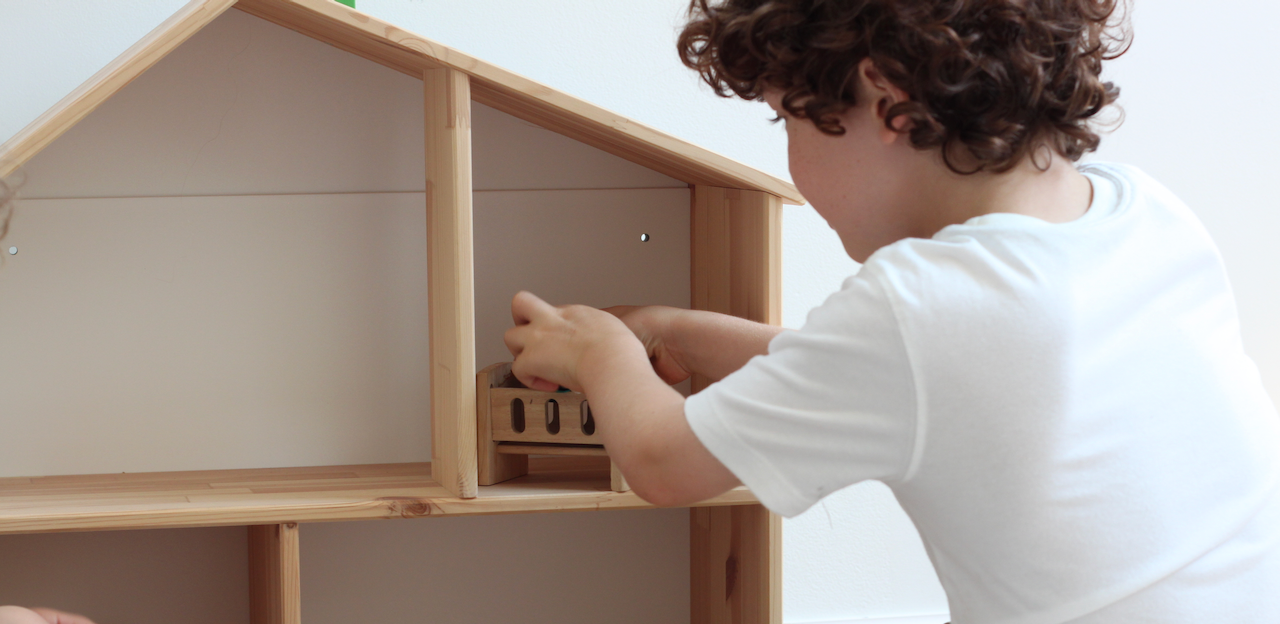
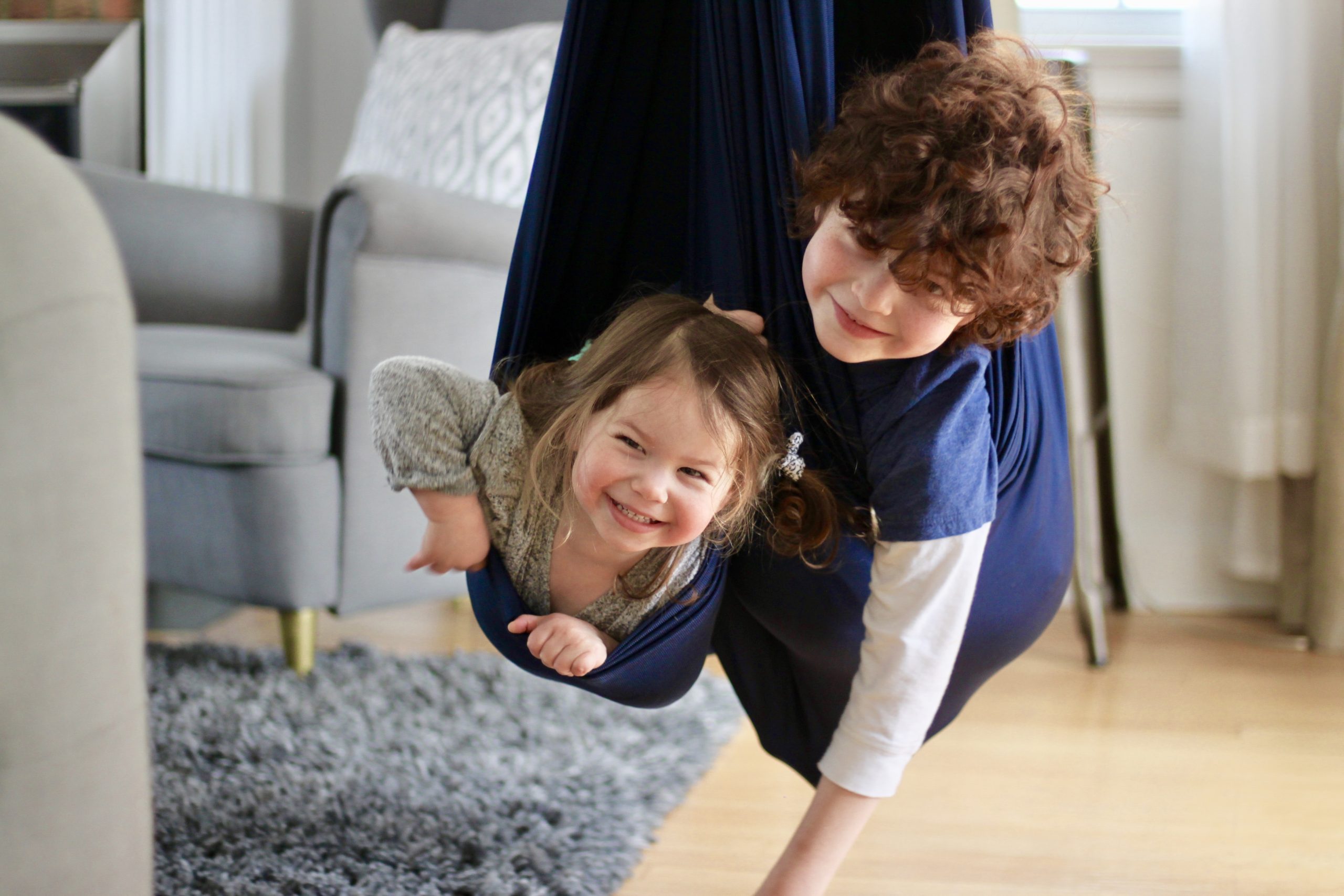

0 comments